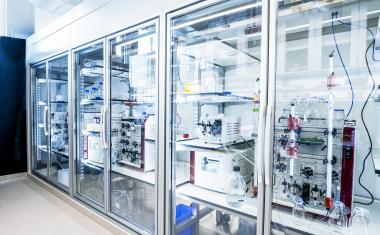11.12.2023 • News
Accelerating Chemicals Innovation
The Spanish computational chemistry start-up Nextmol (Bytelab Solutions), a spin-off from the Barcelona Supercomputing Centre, offers a software-as-a-service (SaaS) platform that accelerates research and innovation in sustainable specialty chemicals through “in silico” experiments using molecular modeling and artificial intelligence (AI).
Read more with free registration
Register now for free and get full access to all exclusive articles from chemanager-online.com. With our newsletter we regularly send you top news from the chemistry industry as well as the latest e-issue.
most read

BASF Sells Majority Stake in Coatings Business
BASF sells a majority stake in its coatings business to the investor Carlyle.

Ratcliffe: Chemical Industry in Europe at a Tipping Point
Ineos CEO Ineos calls on European politicians to save the chemical industry.

Novo Nordisk to Cut 9,000 Jobs Globally in Major Restructuring
Novo Nordisk announced a global workforce reduction of approximately 9,000 positions to streamline operations and reinvest DKK 8 billion (€1 billion) in growth opportunities for diabetes and obesity treatments.

Orion Announced Plans to Shut Down Carbon Black Plants
Carbon black manufacturer Orion Engineered Carbons plans to rationalize production lines in North and South America and EMEA.














